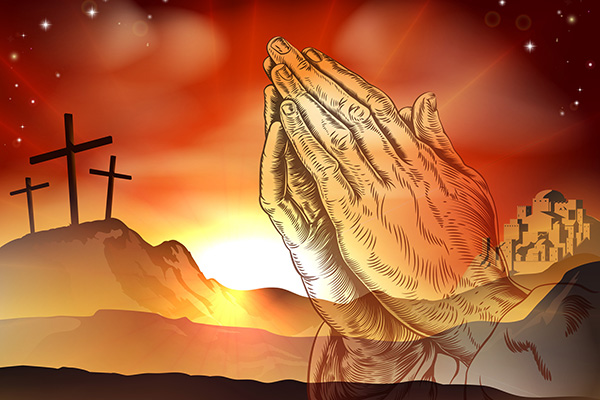isolation
Why Some Of Us Must Walk Alone To Find Our Tribe
 The topic of belonging comes up a lot lately in conversations with close friends, and it is often a concern for my clients when I do readings. A rise in loneliness appears to be a worldwide issue.
The topic of belonging comes up a lot lately in conversations with close friends, and it is often a concern for my clients when I do readings. A rise in loneliness appears to be a worldwide issue.
A conversation I had with a Spanish family recently was truly food for thought for me. We spoke about the disconnect with people in general, but the family in question strives to maintain family meetings and chats over meals, even though the younger ones spend more and more time on their phones.
One of the younger family members, told me that having a sense of community is part of his family’s religious practice. He makes a conscious effort to be disciplined about phone use when the family comes together. Hopefully, he will educate more of his peers about the importance of being present for in-person connection.
Personally, I have always tended to shy away from group gatherings, but I must say that I have been impressed by the warmth of the locals here in Spain, and their desire to include me in their community.
A few years ago, when my husband died just before Christmas, my Spanish friends in the farming community where I lived at the time told me, in no uncertain terms, that I would be joining them for Christmas and New Year’s family gatherings. I told them I’d prefer to stay home, especially considering the snow the previous Christmas that had confined us to our property for a few days.
2026 Numerology: A Year Of New Beginnings
 Some years are subtle turning points with an inner shift or quiet sense of new beginnings. The energy of 2026 offers exactly that.
Some years are subtle turning points with an inner shift or quiet sense of new beginnings. The energy of 2026 offers exactly that.
In numerology, 2026 is a 1 Year. This is the start of a new nine-year cycle. During this time, our identity and direction become very important.
A year isn’t about finishing what you started last year. It’s about making space for new things to come out. The universe gives us a clean slate in 2026. Even if we don’t know what to write on it yet, we can feel that something inside us is ready to start fresh.
I’ve noticed this change a lot lately when I talk to people about how they feel as they go into this new cycle. Two people close to me show this energy well: one is a client and the other is a friend. Their situations are not rare, and many of us can relate to them.
The client has spent years feeling a strong desire to be more true to himself. Like many people, he hasn’t been unhappy, just not fully expressed.
He has ideas that get people excited, but he always feels “too busy” or “not ready.” He has a good career, and he’s thankful for it, but he’s not passionate about it. He feels like life is good, but not completely for him.
His story is familiar to anyone feeling the nudge to start fresh, without knowing how. The gift of a 1 Year membership is an invitation to take the first step, whether that’s exploring an interest or voicing a long-held dream. It doesn’t require a full plan. You just need the courage to begin.
Tell-Tale Signs You Are Being Gaslighted
 You’re crazy, that never happened. Don’t be so sensitive. I’ve never had this problem with anyone else but you. It was never my idea, it was yours! Come on, you’re imagining things. Everyone else agrees, except you. You’re just making things up.
You’re crazy, that never happened. Don’t be so sensitive. I’ve never had this problem with anyone else but you. It was never my idea, it was yours! Come on, you’re imagining things. Everyone else agrees, except you. You’re just making things up.
These are just some of the things you might hear when someone is gaslighting you. It usually happens whenever you confront them about their bad behavior, only to have your reality twisted in return…in ways that can really make your head spin!
Gaslighting is a form of psychological abuse that most often shows up in toxic romantic relationships, but it can also manifest in dynamics with friends, coworkers, employers, family members, and even neighbors and landlords.
At its core, gaslighting is the manipulation of your sense of reality, leaving you confused, anxious, and doubting yourself and your own perceptions. Sometimes it’s very obvious and unmistakable. Other times, it happens so subtly you may not even realize you’re being manipulated.
The term “gaslighting” comes from the 1938 stage play Gas Light, which was later made into the 1944 film of the same name.
In the story, a husband tricks his wealthy wife into thinking she’s going crazy by making small changes to their surroundings, like dimming the gas lights, and then denying that anything has changed. His goal is to make her doubt her own sanity, so he could have her committed to a mental institution and gain control of her inheritance.
The Sublime Joy Of Solitary Bliss
 There’s something truly magical about solitude. I’m not talking about loneliness or feeling isolated. I’m talking about that golden, nourishing moments of ‘me-time’ when you can just be alone in peace with yourself — and only yourself.
There’s something truly magical about solitude. I’m not talking about loneliness or feeling isolated. I’m talking about that golden, nourishing moments of ‘me-time’ when you can just be alone in peace with yourself — and only yourself.
For me, taking time out from the noise and chaos is not just a preference. It’s a sacred necessity. I mostly like to do things on my own, at my own pace, without interruption. Whether I’m meditating, walking in nature, or simply brewing a cup of tea, being alone allows my heart, mind and soul to breathe!
Some people thrive in the company of others. They feel alive in the presence of connection and togetherness. And I respect that. We all walk different paths, and what nourishes one soul may not nourish another in the same way.
But for those of us who find peace in solitude, the inner sanctuary is a silent temple — where we commune with the divine, reconnect with our essence, and return to the world feeling centered and whole.
Solitude is not just a lifestyle choice for me — it’s the grounding force that supports everything else in my life.
When I am peacefully alone, I can focus better, think more clearly, and become truly aligned. My energy is mine. My time is mine. My thoughts are mine. There’s no need to filter, explain, or adjust to anyone else’s expectations. It’s just me, myself and the universe — and in that space I feel centered and complete.
The Touching Tale Of The Praying Hands
 In the fifteenth century, in a tiny village near Nuremberg, Germany, lived a family with 18 children. Yes, eighteen! To put food on the table for this mob, the father and head of the household, a goldsmith by trade, worked nearly 18 hours a day at his trade, as well as any other paying job he could find in the neighborhood.
In the fifteenth century, in a tiny village near Nuremberg, Germany, lived a family with 18 children. Yes, eighteen! To put food on the table for this mob, the father and head of the household, a goldsmith by trade, worked nearly 18 hours a day at his trade, as well as any other paying job he could find in the neighborhood.
Despite their seemingly hopeless situation, Albrecht and Albert, two of the older children, had a dream. They both wanted to pursue their talent for art, but they were well aware that their father would never be financially able to send either of them to an art academy.
After many long discussions at night in their crowded bed, the two boys finally worked out a pact. They would toss a coin. The loser would go down to the nearby mines and use his earnings to support his brother, who would attend the academy.
Then, after four years, when the brother who won the coin toss finished his studies, he in turn would support the mining brother to also attend the academy – either by selling his artwork or, if necessary, by working in the mines.
They tossed a coin one Sunday morning. Albrecht Dürer won the toss and went to Nuremberg to study art. Albert went down into the dangerous mines and spent the next four years financing his brother, whose creative work at the academy was almost immediately a sensation.
Albrecht’s etchings, woodcuts, and oils were far superior to those of most of his fellow students and even his professors, and by the time he graduated he was beginning to earn substantial fees for his commissioned works.
The Freedom To Live Your Truth
 Honesty is one of those things we all know is important, but let’s face it — it’s not always the easiest option. Telling the truth often does not win you friends, make your family happy, or help you climb the corporate ladder.
Honesty is one of those things we all know is important, but let’s face it — it’s not always the easiest option. Telling the truth often does not win you friends, make your family happy, or help you climb the corporate ladder.
But when you’re on a spiritual journey or facing a karmic reckoning — the truth is everything! It’s not just about being a better person; it’s about living in alignment with your higher self.
Being honest brings a sense of lightness, like a weight lifted from your shoulders. It frees you from the heavy burden of keeping up appearances and the stress of worrying about what others think.
On the other hand, dishonesty — whether it’s a little white lie or a big deception — creates not only tension, guilt, and physical discomfort; it’s a karmic tumor that poisons your soul, fueling a cycle of chaos and imbalance in your life.
Lies and deceit attract confusion, mistrust, and disharmony, disrupts your energy field and throws your whole being out of balance.
This is why it is said that the truth will set you free. You’ve probably heard the saying? It’s been said so many times that it may sound like a cliché, but there is deep wisdom in it. The truth allows us to live without fear, without constantly looking over our shoulder. It brings clarity and peace.
But let’s face it — truth can be scary. We often avoid it because we don’t want to hurt someone’s feelings, rock the boat, or face rejection.
Tarot Forecast February 2025: Four Of Pentacles
 This month’s card is the Four of Pentacles, symbolizing stability, control, and a strong desire to protect one’s resources.
This month’s card is the Four of Pentacles, symbolizing stability, control, and a strong desire to protect one’s resources.
It speaks to themes of holding on to what you have earned, both materially and emotionally. However, this card also warns against becoming too protective or possessive, which can lead to stagnation and missed opportunities.
The overarching theme for the month is staying in the flow. The Four of Pentacles reminds us that while creating security and stability is important, true balance and a blessed life comes from allowing life’s energies to flow naturally.
Holding on too tightly in an attempt to control everything blocks new possibilities and opportunities, while carelessly letting go completely can lead to instability and chaos.
The challenge for February is to maintain a foundation that is both secure and adaptable — holding on to just enough to guide your path, but remaining open to the unfolding currents of life.
Traditionally, the Four of Pentacles depicts a man sitting firmly on a throne holding four pentacles or coins. He’s holding them firmly, with one balanced on his head, one in his arms, and two under his feet. This image symbolizes material attachment, greed, stinginess, and fear of loss. He is so focused on clinging to his precious possessions that he can’t concentrate on anything else.